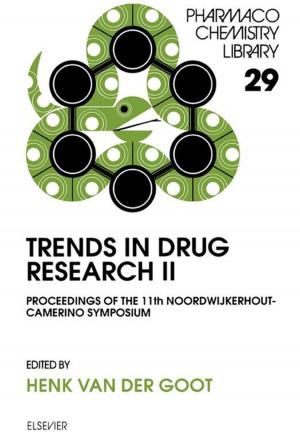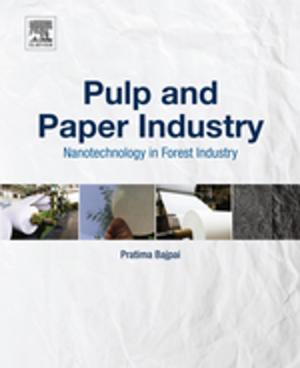Understanding Pathogen Behaviour
Virulence, Stress Response and Resistance
Nonfiction, Science & Nature, Technology, Food Industry & Science| Author: | ISBN: | 9781845690229 | |
| Publisher: | Elsevier Science | Publication: | July 30, 2005 |
| Imprint: | Woodhead Publishing | Language: | English |
| Author: | |
| ISBN: | 9781845690229 |
| Publisher: | Elsevier Science |
| Publication: | July 30, 2005 |
| Imprint: | Woodhead Publishing |
| Language: | English |
Pathogens respond dynamically to their environment. Understanding their behaviour is critical both because of evidence of increased resistance to established sanitation and preservation techniques, and because of the increased use of minimal processing technologies which are more vulnerable to the development of resistance. Understanding pathogen behaviour summarises the wealth of recent research and its implications for the food industry.
After two introductory chapters on ways of analysing and modelling pathogens, Part one summarises current research on what determines pathogenicity, stress response, adaptation and resistance. Part two reviews the behaviour of particular pathogens, reviewing virulence, stress response and resistance mechanisms in such pathogens as Salmonella, E.coli and Campylobacter. The final part of the book assesses how pathogens react and adapt to particular stresses from heat treatment and the effects of low temperature to the use of disinfectants and sanitisers.
With its distinguished editor and international team of contributors, Understanding pathogen behaviour is a standard reference for the food industry in ensuring food safety.
- Summarises the wealth of recent research in pathogen behaviour
- Assesses implications for microbiologists and QA staff in the food industry
Pathogens respond dynamically to their environment. Understanding their behaviour is critical both because of evidence of increased resistance to established sanitation and preservation techniques, and because of the increased use of minimal processing technologies which are more vulnerable to the development of resistance. Understanding pathogen behaviour summarises the wealth of recent research and its implications for the food industry.
After two introductory chapters on ways of analysing and modelling pathogens, Part one summarises current research on what determines pathogenicity, stress response, adaptation and resistance. Part two reviews the behaviour of particular pathogens, reviewing virulence, stress response and resistance mechanisms in such pathogens as Salmonella, E.coli and Campylobacter. The final part of the book assesses how pathogens react and adapt to particular stresses from heat treatment and the effects of low temperature to the use of disinfectants and sanitisers.
With its distinguished editor and international team of contributors, Understanding pathogen behaviour is a standard reference for the food industry in ensuring food safety.
- Summarises the wealth of recent research in pathogen behaviour
- Assesses implications for microbiologists and QA staff in the food industry















